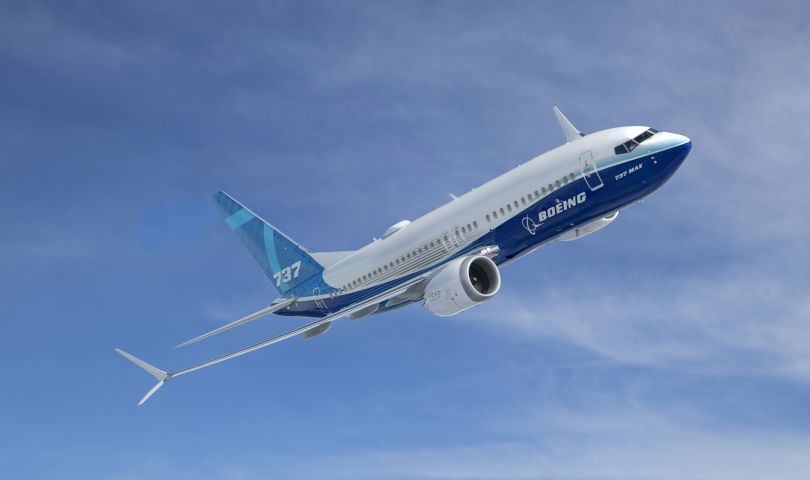Boeing said Wednesday that it lost $1.2bn in the first quarter as it took large write-downs and lost money in both its civilian airplane and defence businesses.
The loss was bigger than Wall Street had forecast, and the company's quarterly revenue also fell short of expectations.
Shares of Boeing Co., based in Chicago, fell almost 4% before the opening bell Wednesday.
Boeing offered some optimism for improvement, however, saying that it has submitted plans to resume deliveries of its 787 airliners and it increased production and deliveries of the 737 Max passenger jet during the quarter.
CEO David Calhoun said the company was on track to generate positive cash flow over the entire year "despite the pressures on our defence and commercial development programs."
The quarterly report brought disappointing news for shareholders on a number of Boeing programs.
The company pushed back the expected first delivery of the 777-9, a new variant of Boeing's long-range, twin-aisle passenger jet, until 2025 – a move that was widely expected. The delay caused Boeing to forecast $1.5bn in "abnormal" production costs.

Boeing took a $660m charge for its program to build new presidential Air Force One jets, which it blamed on higher supplier costs, final technical requirements and schedule delays. It also took $367m in charges on a military training jet.
Boeing said it submitted plans to the Federal Aviation Administration in the US to resume deliveries of the 787 passenger jet. Those deliveries have been halted for more than a year by production issues which Boeing previously said would add about $2bn in costs, of which $312m was recorded in the first quarter.
Boeing expects to boost production of the 737 Max to 31 planes a month in the current quarter, which runs through June. That plane was grounded worldwide for nearly two years after two deadly crashes.
And Boeing took $212m in pretax charges related to Russia's invasion of Ukraine. The company did not immediately explain the write-down.
In a memo to employees, Calhoun said Boeing is taking steps to improve long-term performance.
"We are a long-cycle business, and the success of our efforts will be measured over years and decades, not quarters," he said.
Boeing's commercial-aeroplanes division lost $859m, hobbled by the inability to deliver 787 jets while Boeing tries to fix production flaws on the twin-aisle plane.
The defence business, long a bulwark against volatility in aircraft sales to airlines, lost $929m as revenue fell 24%.
The company reported a loss attributable to shareholders of $1.22bn, compared with a loss of $537m a year earlier. The "core" loss was $2.75 a share on revenue of $13.99bn. Analysts expected a loss of 25 cents per share on revenue of $16.02bn, according to a FactSet survey.
+Additional reporting AP











